RRAP’s mission is to develop and test novel scientific solutions and make those available to managers to help the Great Barrier Reef and other coral reefs survive in the decades ahead, as global warming is gradually arrested. Through the Pilot Deployments Program, our goal is to further demonstrate and improve the feasibility, cost efficiency, scalability safety and acceptability of RRAP interventions – a critical step on the path to adoption and scaling in-water.
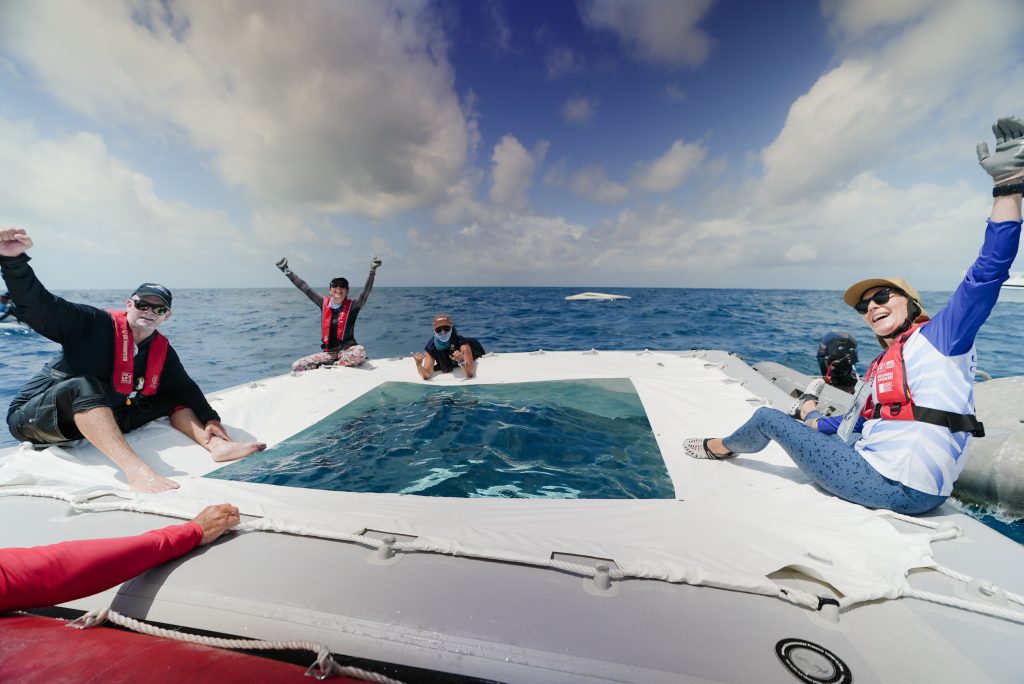
Deploying larval collection pools off Agincourt Reef. Photo: GBRF
The Pilot Deployments Program (PDP) is the operational testing component of the Reef Restoration and Adaptation Program, dedicated to demonstrating and improving the feasibility and efficacy of deploying a subset of RRAP interventions at scale on the Great Barrier Reef.
The three-year Program (2025-2028) is an integral part of RRAP, its delivery is led by the Australian Institute of Marine Science, collaborating with RRAP Partners and activating reef delivery partners.
It is funded primarily by the Australian Government’s Reef Trust.
As RRAP interventions advance in their technology readiness, they are transitioned into the Pilot Deployments Program for larger operational trials.
A structured feedback loop then returns this information to the RRAP research teams, allowing them to refine, adapt, or scale technologies based on lessons learned. This iterative process ensures continuous improvement and accelerates intervention development.
The RRAP R&D Program has recommended two types of interventions for pilot deployment in 2025 – seeding of larvae and seeding of aquaculture-propagated corals.
These interventions were selected based on their more advanced technology readiness and modelled potential benefits to the Reef.
The Program aims to further develop and prove novel interventions before they become critically needed by:
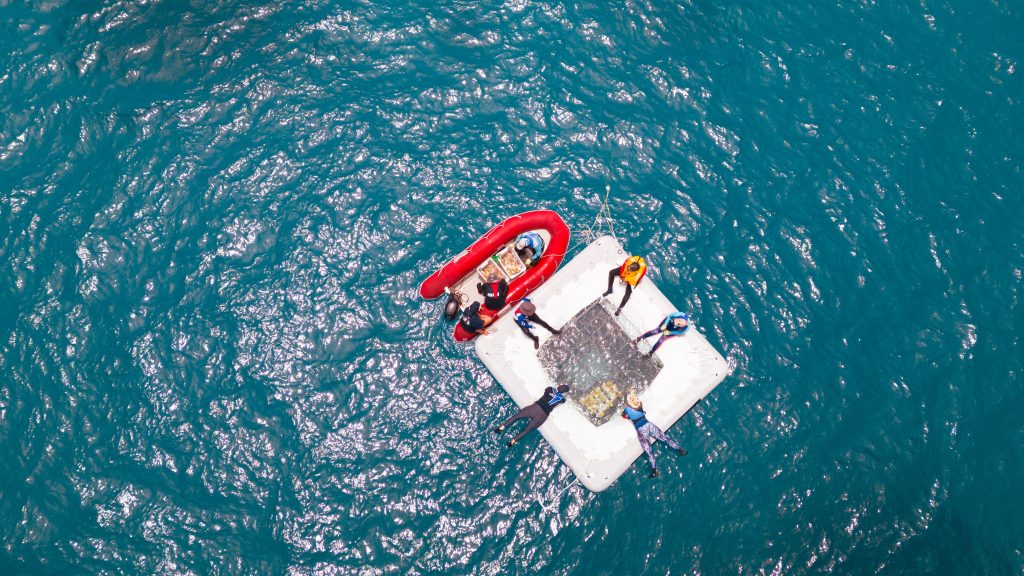
Traditional Owners, tourism operators and researchers work together to set up floating pools to collect coral spawn, early capacity building activities in December 2024. Photo: Great Barrier Reef Foundation
During PDPs early capacity building projects in 2024, Traditional Owners, marine tourism operators, and marine industry groups capacity building project, took part in activities based around the annual Great Barrier Reef coral spawning event.
Participants across tourism, aquarium trade, maritime services and Traditional Owners worked alongside RRAP researchers from industry vessels. The crews were trained in emerging methods for collecting and delivering large volumes of coral larvae and young corals onto reefs.
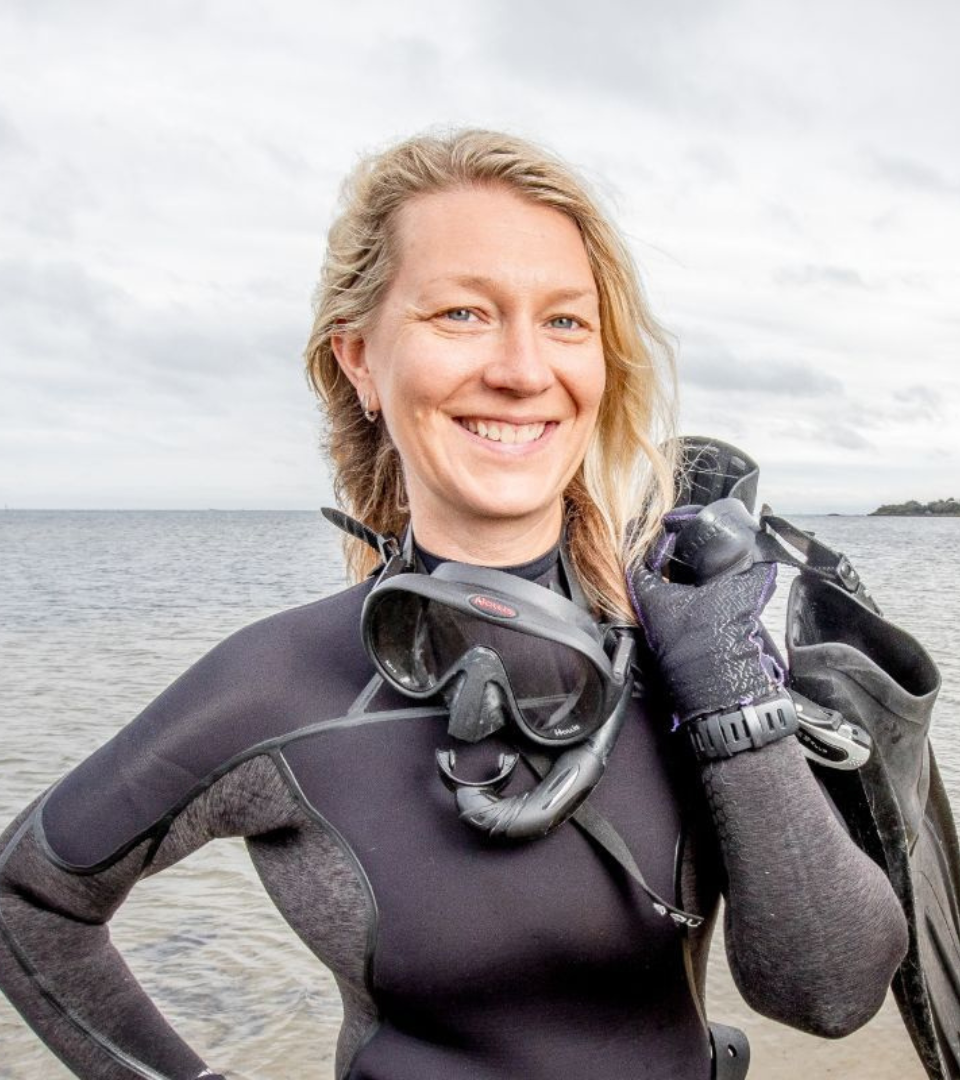
Dr Pirjo Haikola
Project Officer, Research Planning
AIMS
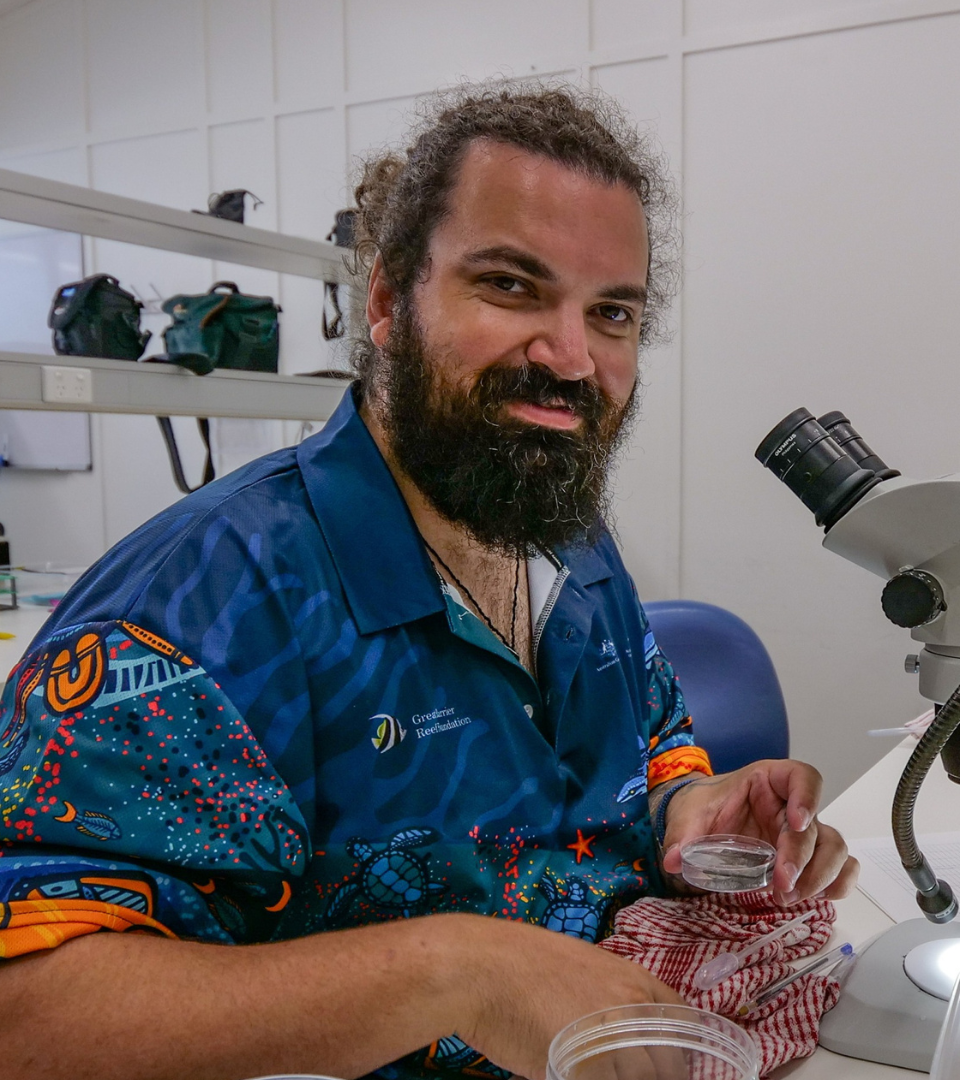
Jordan Ivey
Indigenous Futures Project Leader
AIMS
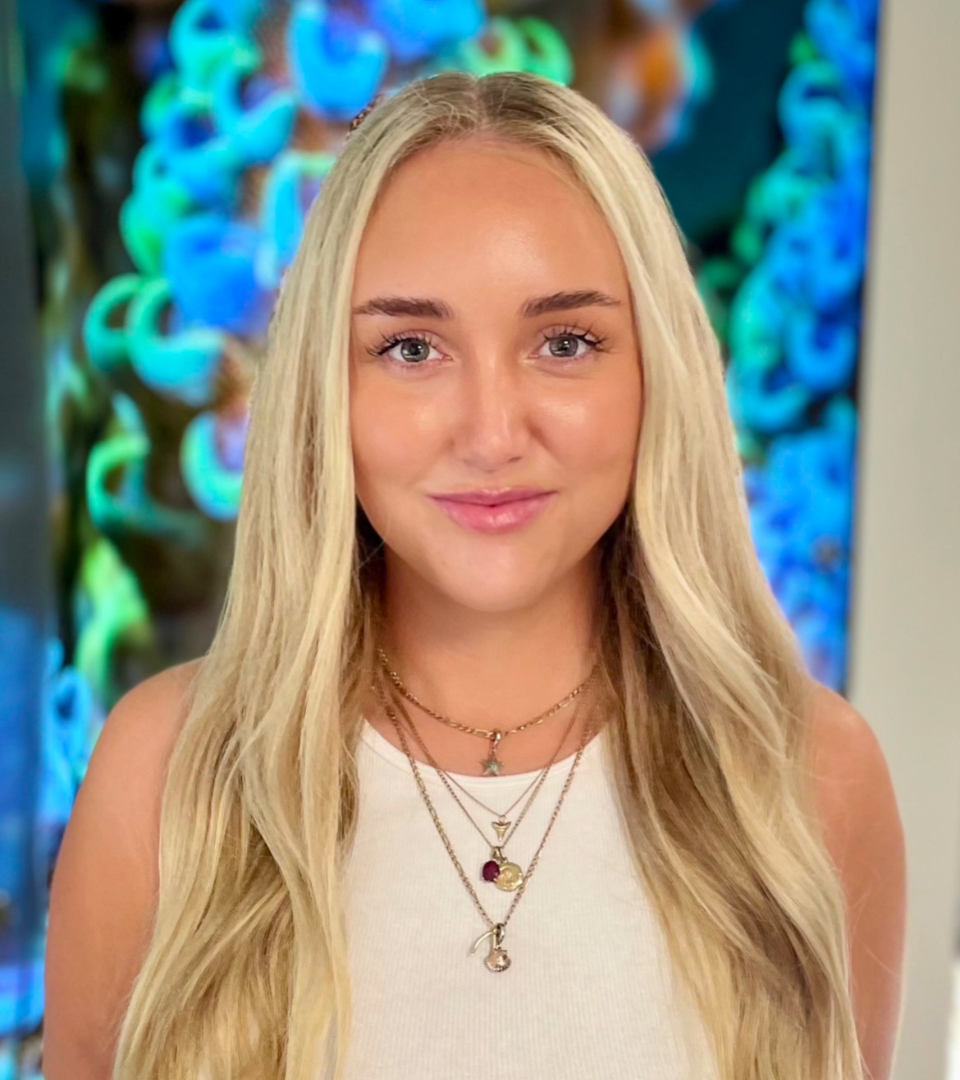
Ruby O'Neill
Project Officer, Contracts
AIMS